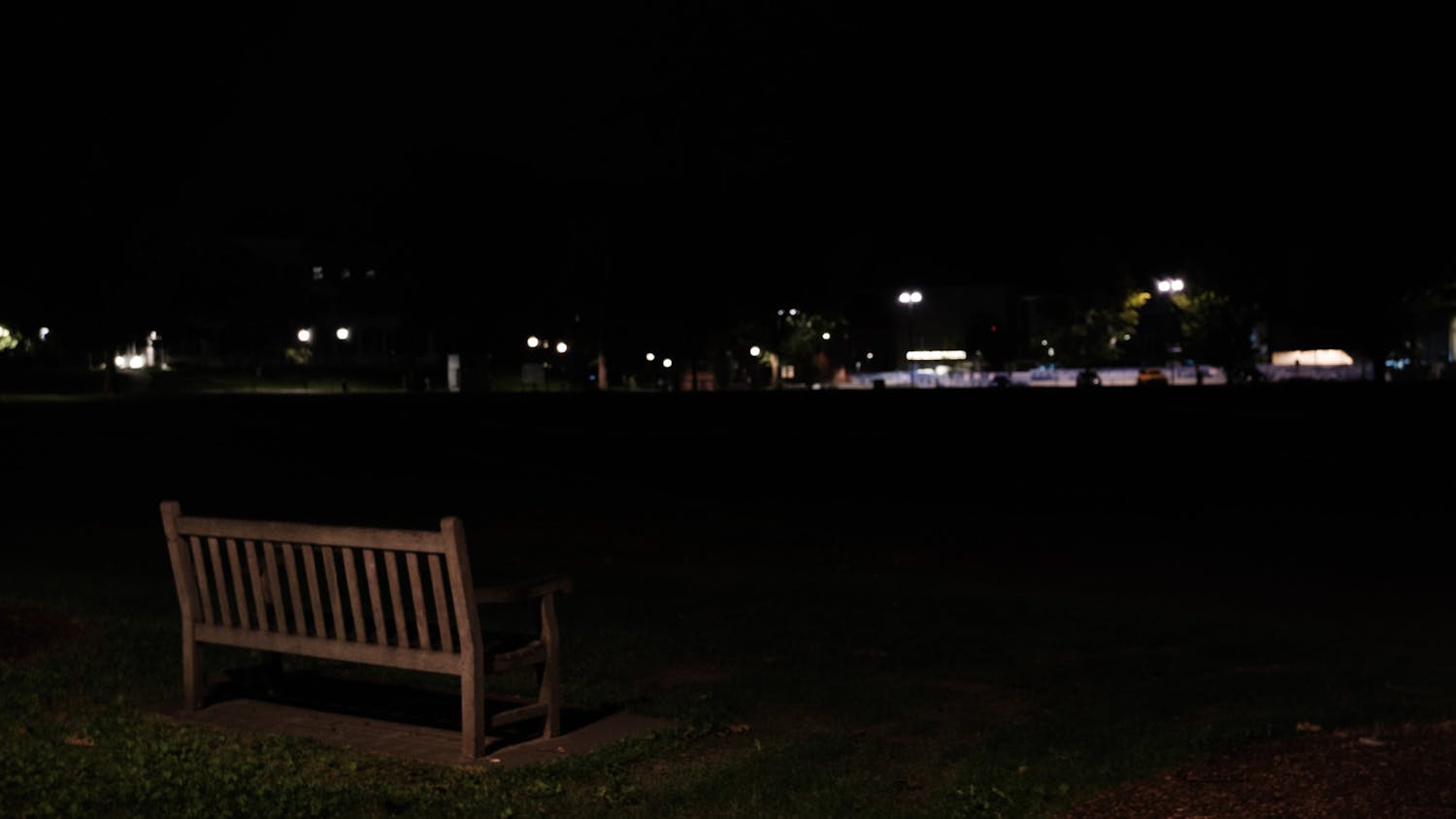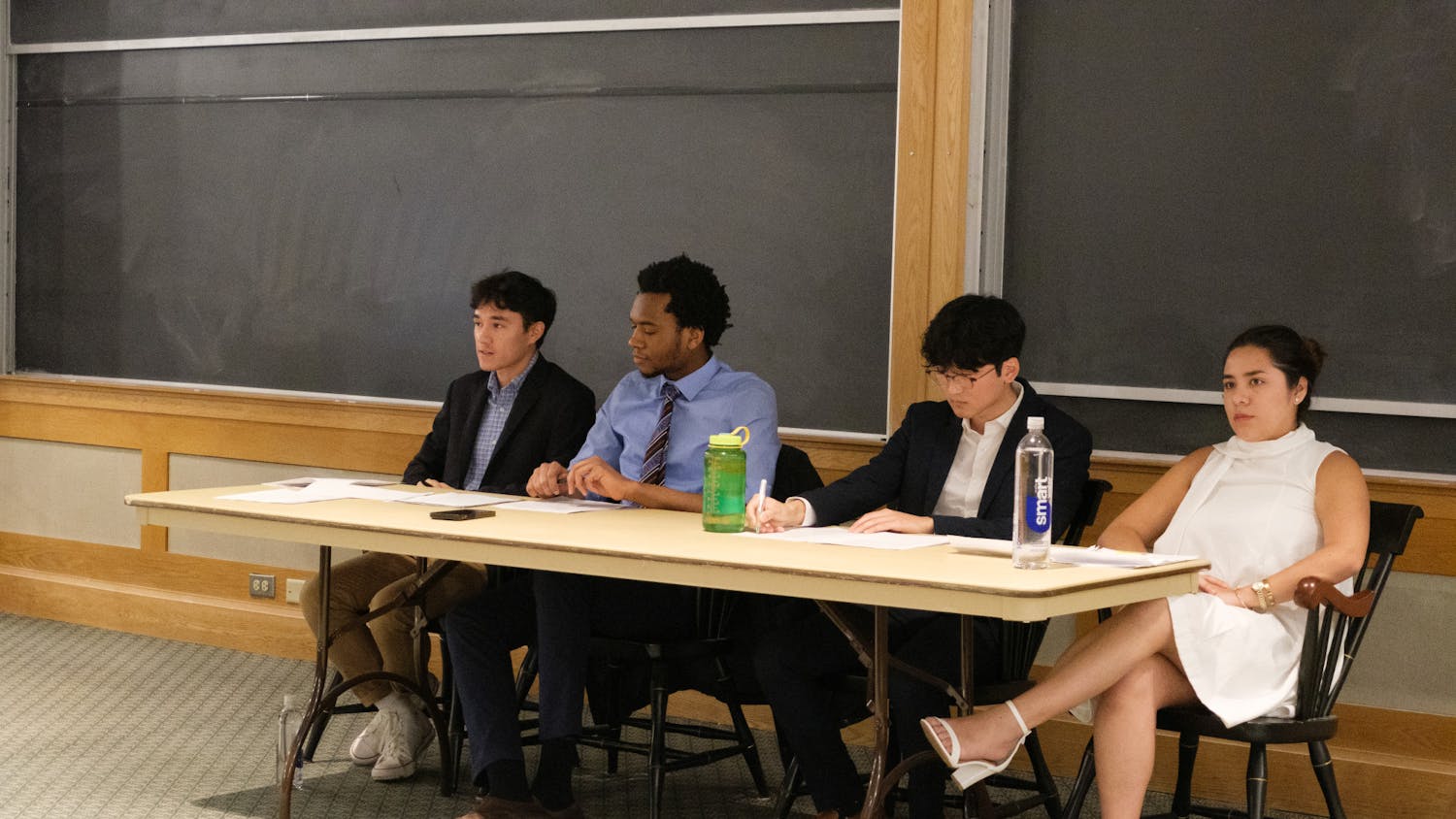Students hoping to spend their Memorial Day relaxing with the cancellation of classes might instead spend the day cooped up in the library studying on the first day of reading period.
After Spring term classes officially end Wednesday, Thursday will serve as the second day of the split-up reading period, with final exams beginning Friday. While students may view this as an inconsiderate planning action taken by the College, it is the only possible set-up in order to accommodate the required number of classes before commencement, according to the Registrar's office. Between the first part of January and the second Sunday of June, two terms must be held, including sufficient time for classes, reading days, vacations and final examinations.
Yet, students still must bear the consequences of nonconsecutive reading days. Taylor Alan-Lee '08 believes this will affect how he studies for his three final exams that begin Friday.
"Using Memorial Day as a reading period, I will most likely end up doing homework for my last day of class as opposed to studying for my finals," he said.
In 1998, the College agreed to support a 1995 proposal to make Memorial Day an official College holiday and thus separate the reading days. Memorial Day is traditionally a day to honor those who have died in the military. This alteration to the calendar went into effect for Spring term 1999.
After two years of honoring the new calendar, the College, with the help of Student Assembly, looked into accommodating two consecutive reading days in 2001.
Again, as a result of the required number of class days per term, plus the need to balance Monday/Wednesday/Friday classes with those on Tuesdays and Thursdays, reading period was forced to remain divided. The Registrar's office considered one last alternative, to hold classes on one Saturday of the spring term, but neither faculty, students nor administrators supported this proposal.
Registrar Polly Griffin participated thoroughly in these decisions and acknowledged the difficulty of celebrating Memorial Day while accommodating academic needs, calling it an "admittedly awkward" situation.
As students technically are supposed to use Memorial Day to study for upcoming finals instead of attending classes, one wonders why the College celebrates the holiday at all. Jane Carroll, assistant dean of the faculty, expressed hope that the cancellation of classes will cause people to consider the meaning of the holiday at some point during the day.
"We hope that those faculty and students who have to work on that day can take a moment and observe it," she said.
Memorial Day was first observed on May 30, 1868, in order to commemorate soldiers that died in the Civil War. In 1971, it was declared a national holiday by Congress to be celebrated on the last Monday in May.
The decision to celebrate Memorial Day was a joint decision made by several offices of the College, most notably the Committee on Organization and Policy and the Office of the President. In order to change the calendar, the decision must be approved through a faculty committee system and eventually be voted on by the faculty as a whole. Unless the faculty vote to decrease the required number of class days, the situation will remain as stands, according to Dean of the College James Larimore.



